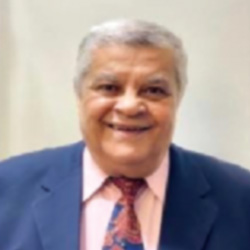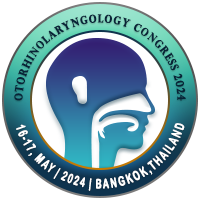
Ahmed N. Ghanem
Mansoura University, EgyptTitle: The complete evidence that Starling’s law responsible for many errors and misconceptions on fluid therapy in shock is wrong: The correct replacement is the hydrodynamic phenomenon of the porous orifice (G) tube
Abstract
Introduction and objective
To report the hydrodynamic of a porous orifice (G) tube as replacement ffor the wrong Starling’s law.
Material and methods
Hydrodynamics of the G tube, based on capillary ultra-structure, were studied. The effect of changing G tube orifice diameter, proximal pressure and distal pressure on the side pressure and chamber (C) pressure were evaluated. The physiological proof that the capillary works as G tube not Poiseuille’s tube is provided.
Results
Hydrodynamics of the G tube showed that proximal, akin to arterial, pressure induces a negative side pressure gradient on the G tube wall, which is negative causing suction maximum near the inlet and turn positive near the exit causing filtration. This created the rapid, autonomous magnetic field like fluid circulation phenomenon between G and C. The physiological evidence on the hind limb of sheep proves that the capillary works as G tube.
Conclusion
Hydrodynamic of the G tube challenges the role attributed to arterial pressure as a filtration force in Starling’s law. A literature review shows that oncotic pressure does not work, and the law has failed to explain the capillary–ISF transfer. A concept based on the new hydrodynamic phenomenon of the G tube is proposed to replace Starling’s law. A rapid autonomous dynamic magnetic field-like G–C circulation occurs. Factors which initiate, regulate, and affect the G–C circulation, its physiological proof and relevance to clinical importance are given. Physiological evidence on capillary working as G tube not Poiseuille’s tube is provided.
Biography
Dr, Ahmed Nasr Ghanem was educated in Egypt and qualified (MBBCH) in 1974, Faculty of Medicine, Mansoura University, Egypt. He spent his internship at Mansoura University Hospitals. He gained all postgraduate experience in UK where he was promoted in posts up to the consultant level. He practiced as consultant Urologist in the UK, Saudi Arabia, and Egypt. During his career life he attended many conferences and won the award of Princes Alexandra Memorial Award and reported over 100 articles of which he made important new 15 discoveries in physics, physiology, and medicine. He discovered two new types of vascular shocks, proved that one physiological law (Starling’s law) is wrong and provided the correct replacement of G tube hydrodynamic. He resolved the puzzles of 3 clinical syndromes: the transurethral resection of the prostate (TUR) syndrome, the loin pain haematuria syndrome (LPHS) and the adult respiratory distress syndrome (ARDS) as well as hyponatraemia. He authored 8 books of which 4 have recently been published. Now he is happily retired dedicating his time to writing scientific medical articles and peer reviewing and editorial board member for many Journals at his own cost for humanity’s sake. He was the Editor in Chief for Surgical Medicine Open Access Journal (SMOAJ). Now he is the Editor in Chief of the Genesis Journal of surgery and medicine.

